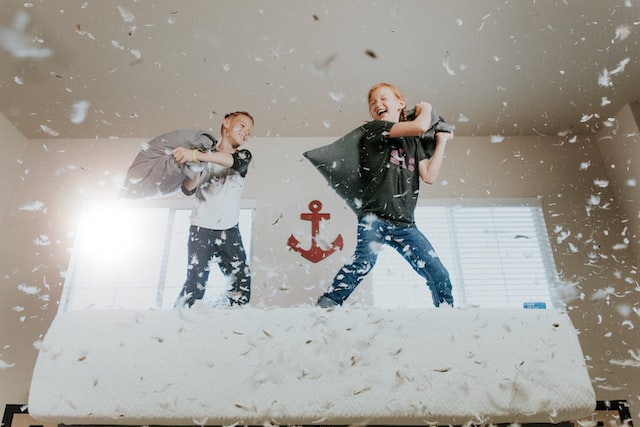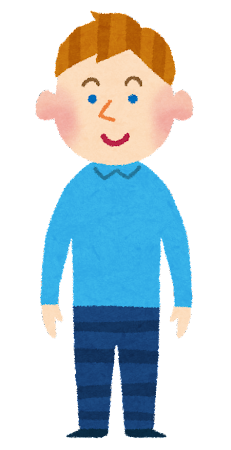ライフハックとしてではなく、英語学習にも極めて有用なのが、著名人が10分程度のプレゼンを行うTEDです。
TED Talksとは、あらゆる分野のエキスパートたちによるプレゼンテーションを無料で視聴できる動画配信サービスのことです。10年ほど前にサービスが開始されてから、政治、心理学、経済、日常生活などの幅広いコンテンツが視聴できることから人気を集めています。
RareJob English Lab
TEDは4000を超える膨大な数の動画があります。しかし慣れないうちは、動画の探し方や視聴のコツが分かりませんよね。この記事では、数多くのTEDを見てきた管理人(塩@saltandshio)が、心を揺さぶられたトークをあらすじと一緒にご紹介します。
ビジネス英会話を効率よく身につけたい方におすすめスクール
シェーン英会話
シェーンは1977年の創業以来、ネイティブ講師が英語を英語で教える「直接教授法」を採用しています。首都圏におけるスクール拠点数は、ネイティブ講師の英会話スクールでNo.1。駅から近いスクールが多いので通いやすく時間を有効に使えます。
スピークバディ パーソナルコーチング
1日1時間の短期集中トレーニングで、あなたの英語力向上をコーチが全力でサポートします。あなたの英語の世界が、劇的に変わります。
スティーブ・キール: ブルガリアと全ての国の人々へ遊びのすすめ
スティーブ・キールは彼の祖国であるブルガリアを脅かしている“まじめミーム” (※ミーム:世代を通して伝達される社会的遺伝子のこと) と戦っています。彼は遊びに立ち戻ることで、ブルガリアの経済、教育、社会を再興できると言います(約18分)。
[PR]知って得する、知らないと損をする!すぐに役立つ相手に合った「伝え方」のコツ!最下位の国、ブルガリア
スティーブ・キールは、祖国であるブルガリアの現状を嘆きます。なぜなら、ブルガリアは革新性・医療制度・GDP・起業家がもたらす社会への貢献度など、ほかにも様々なことが研究機関が発表しているランキングで最下位に位置しているからです。
そうなった理由は、『遊び』を排除したからだとスティーブ・キールはいいます。ブルガリアは45年にわたり共産主義の国でした。社会や国家が個人より優先され、創造性・自己表現・革新性が制限されていたのです。代わりに、『まじめ』であることがなによりも推奨されました。
子供が公園で遊ぶことはおろか、水遊びや泥遊びも禁止されていました。両親や祖父母からも、「子供たちはまじめな一生に備えなければいけない」という教育を叩きこまれたのです。
[PR]無料体験レッスン実施中!全国208校、創業40年の老舗英会話スクール【シェーン英会話】すべての元凶は『まじめ』遺伝子
両親や祖父母によって子供たちに植え付けられた真面目ミーム(真面目遺伝子)は、彼らにどのような影響を与えるのでしょうか。スティーブ・キールは、時代遅れの教育制度に浸透するといいます。ブルガリアの教育制度は100年間ほとんど変わらず、暗記学習・記憶・平準化に価値を置き、自己表現や自己探索、質問や創造性、遊びを軽んじたのです。
社会に出ると、今度は上司のいいなりという社員が出来上がります。その上司も部下を信用せず、独裁的に扱い、まるで犯罪者を扱うように防犯カメラで監視します。そうして、制約を受けた労働者は、携帯電話もPCも使用禁止、インターネット検索もさせてもらえずロボットのように働かせられ、一日を終えたときに感じるのは虚しさだけという日々を過ごすようになります。これでは、生産性が上がらないのも当然です。
すべては、『真面目』を優遇し、『遊び』を軽んじたことによって現在進行形で起きている現実です。
[PR]まずは無料カウンセリング”続けるため”の オンライン英語コーチ「スピークバディ パーソナルコーチング」いまこそ『遊び』を思い出そう
スティーブ・キールは、遊びはブルガリアを良い方向へ導くために使える触媒であり、革命であるといいます。その理由は明確です。
遊び。私たちの脳は元々遊ぶようにできています。私たちの脳はもともと遊ぶようにできています。
Play: our brains are hardwired for play.
とてつもなく長い進化の過程で、動物や人間は遊びを取り入れました。遊びを知っている動物たちは、生存競争にも勝ち残るだけでなく、社交性にも富んでいます。逆に、遊びを制限された動物は生存率も低く、社会性が乏しくなってしまうのです。
そして、遊ぶほど脳が大きくなることも知られています。
私たち人間も、スポーツを行い、芸術活動を行い、ダンスを踊ったり、楽器を演奏します。私たちは、生まれてから死ぬまで自然と遊ぶように仕組まれた動物なのです。たくさん遊ぶことで創造性が刺激され、情緒的発育が促され、変化を容認するようになり、学習能力も増し、物事を決定する力も付くのです。
[PR]検定試験合格者累計140万人!スマホ対応☆国家資格ほか資格取得ならSMART合格対策講座『遊び』によって問題は改善される
逆に、遊びのない世界とはどんなものか想像してみてください。映画のない世界、アートのない世界、歌のない世界、ダンスのない世界、サッカーのない世界、フットボールのない世界、笑いのない世界……などなど。世界はどんなふうに見えるでしょう。殺風景で陰気に感じませんか?
私たちは一般的に、遊びの反対は仕事だと考えます。
遊びの反対は仕事ではありません。
遊びの反対はうつ病です。うつ病ですよ。
The opposite of play is not work.
The opposite of play is depression. It’s depression.
スティーブ・キールは、遊びは不まじめなものではなく、遊びは取るに足らないものでもないといいます。笑うことによって、免疫力が上がることは知られています。笑いは偉大な薬なのです。
私たちは、遊びを排他すべきではありません。むしろ、歓迎すべきなのです。
[PR]しちだの魔法ペンなら35日でバイリンガルに!楽天4部門1位の英会話!<七田式>まとめ:遊びによって革命を起こそう
遊びは悪ふざけすることではありません。本気で遊ぶ時、人は人を尊重して大切に扱っています。大切な遊び仲間だからです。人を人として扱い、尊敬を持って接すると、人は幸せになり満たされて、さらにやる気と目的を持てます。
それは社員から顧客に波及し、さらに社会や家庭にも広がり、さらに大きなコミュニティへと広がっていきます。楽しみを増やしたり、環境を良くしていくことは、ひとりひとりの自己肯定感にも繋がっていきます。
自分に遊び心がないと感じたら、まずは遊びを再発見してみましょう。あなたが子供のころに夢中になったものはなんですか?大好きなことはなんですか?まじめにやらなくちゃとか、自分の役割をこなさなければという、見えない鎖を砕きましょう。そして、誰かに与えてもらうのを待っているのではなく、あなたから始めましょう。
要約すると、私たちは考え方や行動を思い切って変える必要があります。一方、労働者の革命は必要ありません。労働者の革命は必要ないのです。
私たちに必要なのは、遊ぶ人の反乱です。
So in summary, we need a drastic change in the way we think and behave, but we don’t need a workers’ revolution. We don’t need a workers’ revolution.
What we need is a players/’ uprising.
最近、どんな遊びをしましたか?遊んでいないなら、遊び心を思い出してみましょう。
英語全文
I’m here today to start a revolution. Now before you get up in arms, or you break into song, or you pick a favorite color, I want to define what I mean by revolution. By revolution, I mean a drastic and far-reaching change in the way we think and behave — the way we think and the way we behave.
<全文を読む>▼クリック▼
And we are last place in so many things — for example, social factors. We’re last place in Europe in innovation. There we are right at the end, right at the bottom, last place as a culture that doesn’t value innovation. We’re last place in health care, and that’s important for a sense of well-being. And there we are, not just last in the E.U., we’re last in Europe, at the very bottom. And worst of all, it just came out three weeks ago, many of you have seen it, The Economist. We’re the saddest place on Earth, relative to GDP per capita — the saddest place on Earth. That’s social. Let’s look at education. Where do we rank three weeks ago in another report by the OECD? Last in reading, math and science. Last. Business: The lowest perception in the E.U. that entrepreneurs provide benefits to society. Why as a result, what happens? The lowest percentage of entrepreneurs starting businesses. And this is despite the fact that everybody knows that small business is the engine of economies. We hire the most people; we create the most taxes. So if our engine’s broken, guess what? Last in Europe GDP per capita. Last. So it’s no surprise, guys, that 62 percent of Bulgarians are not optimistic about the future. We’re unhappy, we have bad education, and we have the worst businesses.
And these are facts, guys. This isn’t story tale; it’s not make-believe. It’s not. It’s not a conspiracy I have got against Bulgaria. These are facts. So I think it should be really, really clear that our system is broken. The way we think, the way we behave, our operating system of behaving is broken. We need a drastic change in the way we think and behave to transform Bulgaria for the better, for ourselves, for our friends, for our family and for our future. How did this happen? Let’s be positive now. We’re going to get positive. How did this happen? I think we’re last because — and this is going to be drastic to some of you — because we are handicapping ourselves. We’re holding ourselves back because we don’t value play. I said “play,” all right.
In case some of you forgot what play is, this is what play looks like. Babies play, kids play, adults play. We don’t value play. In fact, we devalue play. And we devalue it in three areas. Let’s go back to the same three areas. Social: 45 years of what? Of communism — of valuing the society and the state over the individual and squashing, inadvertently, creativity, individual self-expression and innovation. And instead, what do we value? Because it’s shown the way we apply, generate and use knowledge is affected by our social and institutional context, which told us what in communism? To be serious. To be really, really serious. It did. (Applause) Be serious. I can’t tell you how many times I’ve been scolded in the park for letting my kids play on the ground. Heaven forbid they play in the dirt, the kal, or even worse, lokvi, water — that will kill them. I have been told by babas and dyados that we shouldn’t let our kids play so much because life is serious and we need to train them for the seriousness of life.
We have a serious meme running through. It’s a social gene running through us. It’s a serious gene. It’s 45 years of it that’s created what I call the “baba factor.” And here’s how it works. Step one: woman says, “I want to have a baby. Iskam baby.” Step two: we get the baby. Woohoo! But then what happens in step three? I want to go back to work because I need to further my career or I just want to go have coffees. I’m going to give bebko to baba. But we need to remember that baba’s been infected by the serious meme for 45 years. So what happens? She passes that virus on to baby, and it takes a really, really, really long time — as the redwood trees — for that serious meme to get out of our operating system.
What happens then? It goes into education where we have an antiquated education system that has little changed for 100 years, that values rote learning, memorization and standardization, and devalues self-expression, self-exploration, questioning, creativity and play. It’s a crap system. True story: I went looking for a school for my kid. We went to this prestigious little school and they say they’re going to study math 10 times a week and science eight times a week and reading five times a day and all this stuff. And we said, “Well what about play and recess?” And they said, “Ha. There won’t be a single moment in the schedule.” And we said, “He’s five.” What a crime. What a crime. And it’s a crime that our education system is so serious because education is serious that we’re creating mindless, robotic workers to put bolts in pre-drilled holes. But I’m sorry, the problems of today are not the problems of the Industrial Revolution. We need adaptability, the ability to learn how to be creative and innovative. We don’t need mechanized workers. But no, now our meme goes into work where we don’t value play. We create robotic workers that we treat like assets, to lever and just throw away.
What are qualities of a Bulgarian work? Autocratic — do what I say because I’m the chef. I’m the boss and I know better than you. Untrusting — you’re obviously a criminal, so I’m going to install cameras. Controlling — you’re obviously an idiot, so I’m going to make a zillion little processes for you to follow so you don’t step out of the box. So they’re restrictive — don’t use your mobile phone, don’t use your laptop, don’t search the Internet, don’t be on I.M. That’s somehow unprofessional and bad. And at the end of the day, it’s unfulfilling because you’re controlled, you’re restricted, you’re not valued and you’re not having any fun. In social, in education and in our business, don’t value play. And that’s why we’re last, because we don’t value play.
And you can say, “That’s ridiculous, Steve. What a dumb idea. It can’t be because of play. Just play, that’s a stupid thing.” We have the serious meme in us. Well I’m going to say no. And I will prove it to you in the next part of the speech — that play is the catalyst, it is the revolution, that we can use to transform Bulgaria for the better. Play: our brains are hardwired for play. Evolution has selected, over millions and billions of years, for play in animals and in humans. And you know what? Evolution does a really, really good job of deselecting traits that aren’t advantageous to us and selecting traits for competitive advantage. Nature isn’t stupid, and it selected for play. Throughout the animal kingdom, for example: ants. Ants play. Maybe you didn’t know that. But when they’re playing, they’re learning the social order and dynamics of things. Rats play, but what you might not have known is that rats that play more have bigger brains and they learn tasks better, skills. Kittens play. We all know kittens play. But what you may not know is that kittens deprived of play are unable to interact socially. They can still hunt, but they can’t be social. Bears play. But what you may not know is that bears that play more survive longer. It’s not the bears that learn how to fish better. It’s the ones that play more.
And a final really interesting study — it’s been shown, a correlation between play and brain size. The more you play, the bigger the brains there are. Dolphins, pretty big brains, play a lot. But who do you think with the biggest brains are the biggest players? Yours truly: humans. Kids play, we play — of every nationality, of every race, of every color, of every religion. It’s a universal thing — we play. And it’s not just kids, it’s adults too.
Really cool term: neoteny — the retention of play and juvenile traits in adults. And who are the biggest neotenists? Humans. We play sports. We do it for fun, or as Olympians, or as professionals. We play musical instruments. We dance, we kiss, we sing, we just goof around. We’re designed by nature to play from birth to old age. We’re designed to do that continuously — to play and play a lot and not stop playing. It is a huge benefit. Just like there’s benefits to animals, there’s benefits to humans. For example, it’s been shown to stimulate neural growth in the amygdala, in the area where it controls emotions. It’s been shown to promote pre-frontal cortex development where a lot of cognition is happening. As a result, what happens? We develop more emotional maturity if we play more. We develop better decision-making ability if we play more.
These guys are facts. It’s not fiction, it’s not story tales, it’s not make-believe; it’s cold, hard science. These are the benefits to play. It is a genetic birthright that we have, like walking or speaking or seeing. And if we handicap ourselves with play, we handicap ourselves as if we would with any other birthright that we have. We hold ourselves back. Little exercise just for a second: close your eyes and try to imagine a world without play. Imagine a world without theater, without the arts, without song, without dancing, without soccer, without football, without laughter. What does this world look like? It’s pretty bleak. It’s pretty glum.
Now imagine your workplace. Is it fun? Is it playful? Or maybe the workplace of your friends — here we’re forward thinking. Is it fun? Is it playful? Or is it crap? Is it autocratic, controlling, restrictive and untrusting and unfulfilling? We have this concept that the opposite of play is work. We even feel guilty if we’re seen playing at work. “Oh, my colleagues see me laughing. I must not have enough work,” or, “Oh, I’ve got to hide because my boss might see me. He’s going to think I’m not working hard.” But I have news for you: our thinking is backwards.
The opposite of play is not work. The opposite of play is depression. It’s depression. In fact, play improves our work. Just like there’s benefits for humans and animals, there’s benefits for play at work. For example, it stimulates creativity. It increases our openness to change. It improves our ability to learn. It provides a sense of purpose and mastery — two key motivational things that increase productivity, through play. So before you start thinking of play as just not serious, play doesn’t mean frivolous. You know, the professional athlete that loves skiing, he’s serious about it, but he loves it. He’s having fun, he’s in the groove, he’s in the flow. A doctor might be serious, but laughter’s still a great medicine. Our thinking is backwards. We shouldn’t be feeling guilty. We should be celebrating play.
Quick example from the corporate world. FedEx, easy motto: people, service, profit. If you treat your people like people, if you treat them great, they’re happier, they’re fulfilled, they have a sense of mastery and purpose. What happens? They give better service — not worse, but better. And when customers call for service and they’re dealing with happy people that can make decisions and are fulfilled, how do the customers feel? They feel great. And what do great customers do, great-feeling customers? They buy more of your service and they tell more of their friends, which leads to more profit. People, service, profit. Play increases productivity, not decreases.
And you’re going to say, “Gee, that can work for FedEx out there in the United States, but it can’t work in Bulgaria. No way. We’re different.” It does work in Bulgaria, you guys. Two reasons. One, play is universal. There’s nothing weird about Bulgarians that we can’t play, besides the serious meme that we have to kick out. Two, I’ve tried it. I’ve tried at Sciant. When I got there, we had zero happy customers. Not one customer would refer us. I asked them all. We had marginal profit — I did. We had marginal profits, and we had unhappy stakeholders. Through some basic change, change like improving transparency, change like promoting self-direction and collaboration, encouraging collaboration, not autocracy, the things like having a results-focus. I don’t care when you get in in the morning. I don’t care when you leave. I care that your customer and your team is happy and you’re organized with that. Why do I care if you get in at nine o’clock? Basically promoting fun. Through promoting fun and a great environment, we were able to transform Sciant and, in just three short years — sounds like a long time, but change is slow — every customer, from zero to every customer referring us, above average profits for the industry and happy stakeholders. And you can say, “Well how do you know they’re happy?” Well we did win, every year that we entered,one of the rankings for best employer for small business. Independent analysis from anonymous employees on their surveys. It does, and it can, work in Bulgaria. There’s nothing holding us back, except our own mentality about play.
So some steps that we can take — to finish up — how to make this revolution through play. First of all, you have to believe me. If you don’t believe me, well just go home and think about it some more or something. Second of all, if you don’t have the feeling of play in you, you need to rediscover play. Whatever it was that as a kid you used to enjoy, that you enjoyed only six months ago, but now that you’ve got that promotion you can’t enjoy, because you feel like you have to be serious, rediscover it. I don’t care if it’s mountain biking or reading a book or playing a game. Rediscover that because you’re the leaders, the innovation leaders, the thought leaders. You’re the ones that have to go back to the office or talk to your friends and ignite the fire of change in the play revolution. You guys have to, and if you’re not feeling it, your colleagues, your employees, aren’t going to feel it. You’ve got to go back and say, “Hey, I’m going to trust you.” Weird concept: I hired you; I should trust you. I’m going to let you make decisions. I’m going to empower you, and I’m going to delegate to the lowest level, rather than the top. I’m going to encourage constructive criticism. I’m going to let you challenge authority. Because it’s by challenging the way things are always done is that we are able to break out of the rut that we’re in and create innovative solutions to problems of today.
We’re not always right as leaders. We’re going to eradicate fear. Fear is the enemy of play. And we’re going to do things like eliminate restrictions. You know what, let them use their mobile phone for personal calls — heaven forbid. Let them be on the Internet. Let them be on instant messengers. Let them take long lunches. Lunch is like the recess for work. It’s when you go out in the world and you recharge your brain, you meet your friends, you have a beer, you have some food, you talk, you get some synergy of ideas that maybe you wouldn’t have had before. Let them do it. Give them some freedom, and in general, let them play. Let them have fun at the workplace. We spend so much of our lives at the workplace, and it’s supposed to be, what, a miserable grind, so that 20 years from now, we wake up and say, “Is this it? Is that all there was?” Unacceptable. Nepriemliv.
So in summary, we need a drastic change in the way we think and behave, but we don’t need a workers’ revolution. We don’t need a workers’ revolution. What we need is a players’ uprising. What we need is a players’ uprising. What we need is a players’ uprising. Seriously, we need to band together. Today is the start of the uprising. But what you need to do is fan the flames of the revolution. You need to go and share your ideas and your success stories of what worked about reinvigorating our lives, our schools, and our work with play; about how play promotes a sense of promise and self-fulfillment; of how play promotes innovation and productivity, and, ultimately, how play creates meaning. Because we can’t do it alone. We have to do it together, and together, if we do this and share these ideas on play, we can transform Bulgaria for the better.
Thank you.
<閉じる>
\ ほかにも気になるトークが満載! /








